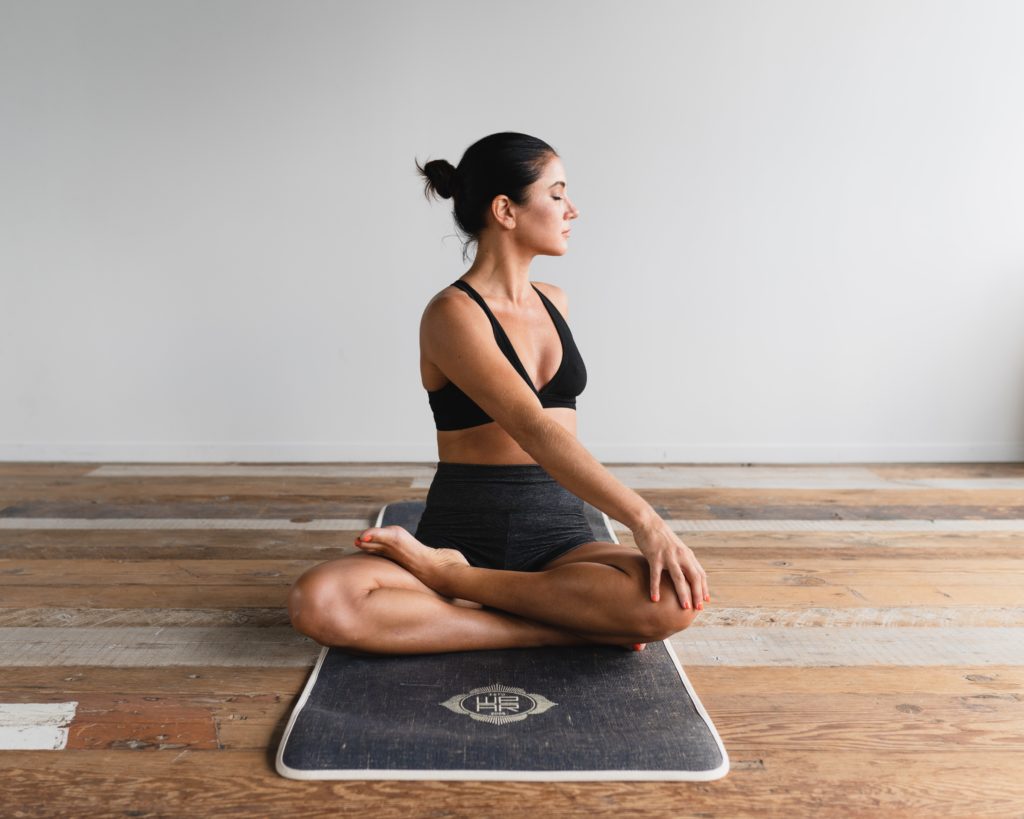Mindfulness may conjure up images of zenned-out blissful yogis sitting in lotus position. However, most people these days are also aware of the many health benefits that mindfulness practices can have on health and well-being.
Athletes are no exception to this. In fact, research shows that mindfulness practices and eating strategies for athletes can help reduce stress, improve overall quality of life, improve sleep, and even reduce the risk of injury and aid in injury recovery (see here, here, here, and here).
Mindful Eating Strategies
We are bombarded by so many nutrition messages about the “what” of eating: calories, macros, nutrient timing, recovery nutrition, hydration, fad diets, supplements, labeling foods as “good” or “bad”…it goes on and on. I find most athletes feel information-overloaded and confused by the many, often conflicting, messages. Mindful eating can help provide some clarity and pairs the “how” and “why” of eating along with the “what”.
Michelle May, author and founder of “Am I hungry?®” Mindful Eating programs, defines mindful eating as “eating with intention and attention: eating with the intention of caring for yourself, and eating with the attention necessary for noticing and enjoying your food and its effects on your body”.
Mindful eating strategies for athletes go beyond simple fuelling guidelines. However, it does not mean ignoring or not paying attention to the body’s fueling demands, and the knowledge we have about sport nutrition. In fact, it’s quite the opposite. Dietitian, Fiona Sutherland, describes mindful eating for athletes perfectly: “Mindful eating is about bringing together the ideas of outer wisdom (nutrition knowledge) and inner wisdom (what we know and understand about ourselves and our bodies)”.
This powerful combination is truly what helps athletes succeed in figuring out individualized fuelling and training plans in addition to fostering a health relationship with food.

Mindful eating strategies and the endurance athlete
The prevalence of under-fuelling in athletes is high. Energy availability is a term used to define the difference in energy (calorie) intake and exercise energy (calorie) expenditure. When athletes are under-fueling, this energy availability becomes low, and brings with it a host of complications including adverse metabolic, hormonal, and psychological changes (read more here). Under-fuelling can be unintentional (simply not eating enough to keep up with training demands), and can also be the result of disordered eating and eating disorders, an unhealthy relationship with food and striving to obtain a certain physique for sport.
Prevalence rates for low energy availability in female runners is often as high as 50% (see here). There are many strategies that can help reverse low energy availability – working with a Registered Dietitian who specializes in sport is key. Developing mindful eating strategies can be one tool to help prevent under-fueling and its related adverse health complications.

So why is mindful eating helpful for you as an athlete?
- To increase awareness of your physical and emotional cues for eating, as well identifying non-hunger cues for eating
- Understand the impact that training has on your body’s signals of hunger and fullness and fully understand your fueling needs in this context, as well as when to over-ride these signals when fueling is the priority
- Learn how to use food for enjoyment as well as nourishment and fuel
- Discover how to eat for satisfaction and satiety
- Develop strategies to foster a healthy relationship with food, reduce disordered eating, and prevent under-fueling

Top 5 Mindful Eating Strategies for Athletes
1. Adopt an attitude of curiosity and non-judgment vs guilt and shame.
This can be very difficult when we are taught by diet culture to feel guilty or bad about certain food choices we make. However, it is imperative to first identify when and why you feel guilt and shame around food, and then work to re-frame those thoughts.
As much as you can, observe why, how, and what you are eating from a neutral perspective. Start paying attention to what hunger feels like, and how different foods make you feel (for example: are you hungry an hour after eating; or did a certain meal keep you full longer?).
2. Check in with yourself before and after workouts.
Stay curious when considering your workouts as well. Pay attention to physical sensations, mental fatigue, feelings, and thoughts. If you are finding that poor quality workouts are happening more often, ask yourself why and try to identify the underlying reasons (could it be due to over-training, under-fueling, fighting illness, feeling bored, not enough sleep, or increased stress?) Try to make adjustments to the root causes instead of just pushing through workouts because you feel you have to.
3. Pause before eating.
Take 10 seconds before eating and try asking
yourself these questions: Why am I eating?
What does my hunger feel like?
What does my food look and smell like?
Taking a moment to pause will bring more awareness and intention to your meal and will likely increase satisfaction as well.
4. Minimize distractions while eating.
In order to fully engage with the eating process, it’s best to try to minimize distractions. This means no phones, television, laptops etc while eating. Try to sit down (even if just for 5 minutes) and be fully present in the experience of eating.
5. Practice makes progress.
Most importantly, remember that there is no right or wrong way to do this. Each time you eat or train is an opportunity to practice being present in the moment in order to tap into what your body is experiencing and how your food and exercise make you feel.
In the end, you yourself have much wisdom and knowledge about your unique fueling needs. If you need help exploring that knowledge, and want to determine how best to combine that with fueling optimally for your sport, feel free to reach out.
Take it one bite at a time,
Cara
If you enjoyed this article about mindful eating strategies for athletes, then you may also enjoy: Top 5 Foods for Recovery from Exercise.






